World War Two Arctic Convoys veteran given Royal Navy funeral
- Published
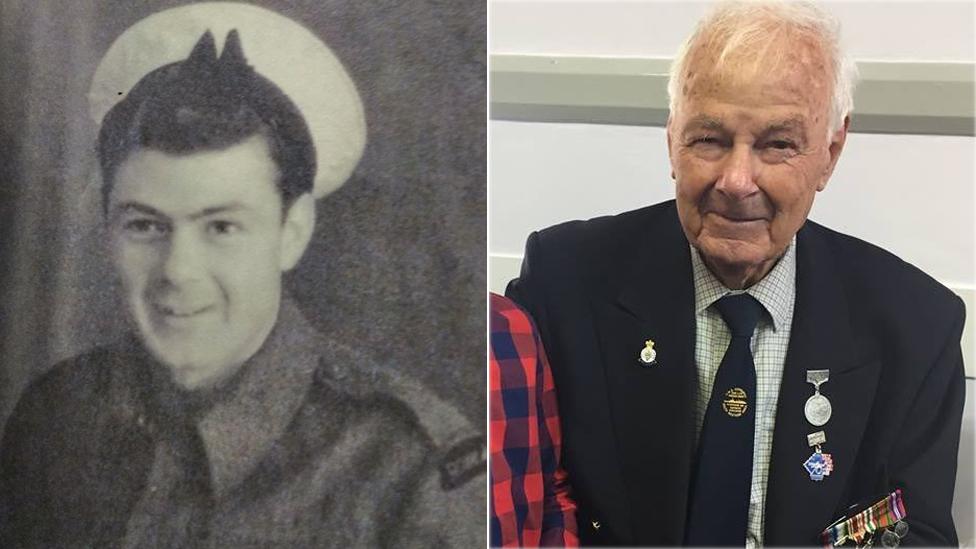
Alan Higgins in 1944 - when he helped in the D-Day landings - and more recently
When Alan Higgins joined the Royal Navy at the outbreak of World War Two, he was not even 16 years old.
He was to survive the sinking of his battleship by Nazi torpedoes, the D-Day landings and the Battle of Anzio.
His service as part of the so-called Arctic Convoys - described by Winston Churchill as "the most dangerous journey in the world" - was recognised by the Russian Embassy last year.
Mr Higgins was on Monday given a naval send-off after he died, aged 97.
Mr Higgins was among the last veterans of the supply voyages to Russia during the war.
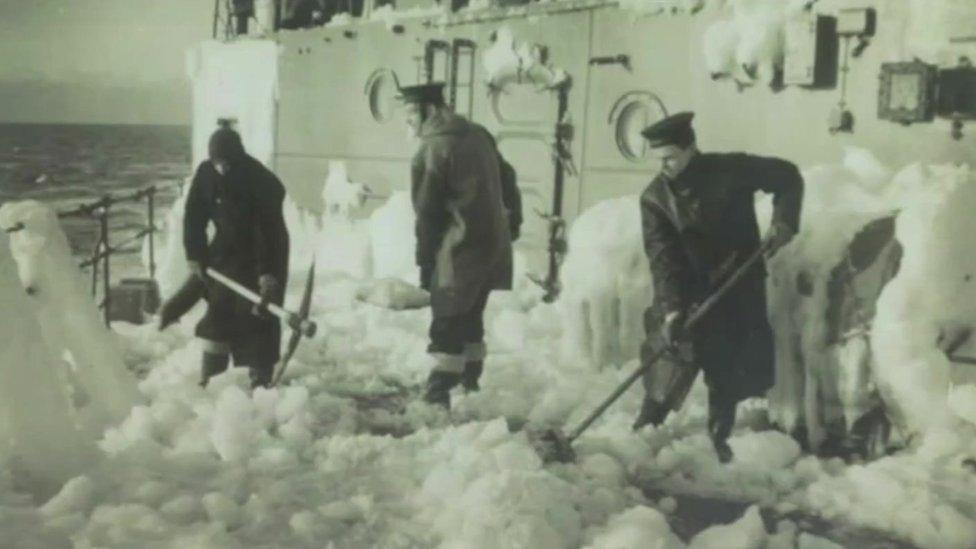
More than 3,000 Allied seamen lost their lives during the Arctic Convoys to Russia
He was aboard HMS Edinburgh when it was sunk by a German U-boat on 1 May, 1942 into the icy waters of the Barents Sea.
He survived and narrowly escaped death again during a bombing raid in Russia, found himself dodging bullets in Italy and crewed Allied landing craft in Normandy on D-Day in 1944.
"He experienced a great deal of trauma during his time serving in the Royal Navy," said his daughter Sue Buckland.
"He was sunk, he was hit several times by a German U-boats [but] I think that gave him a great perspective on life.
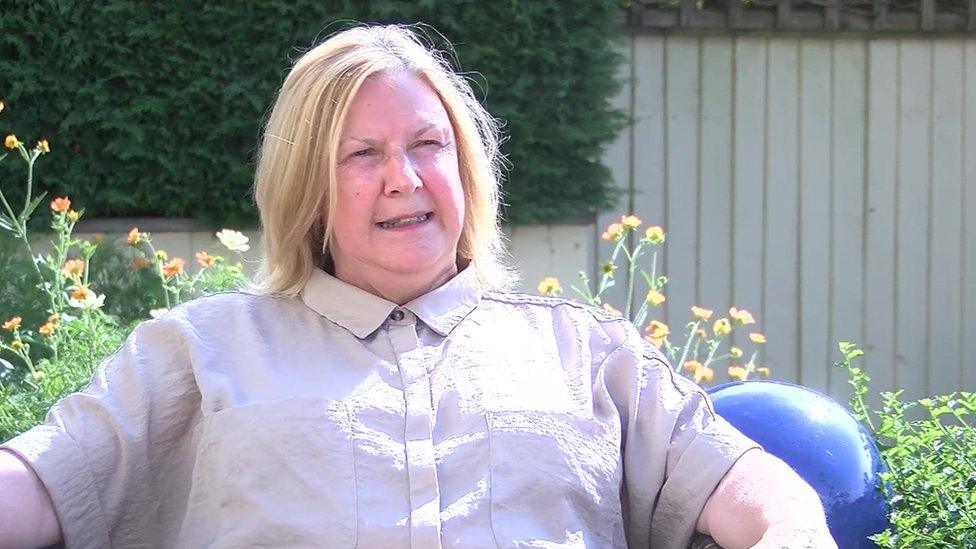
It was a "fitting send-off" said Mr Higgins' daughter said Sue Buckland
"Nothing seemed to get him down. He was to be able to brush things off very easily and he was a very affable and cheerful person,.
"Friends, neighbours have all said what a lovely man he was to know. My father would have loved this send off organised by the Navy.
"He always had a great sense of importance about his time serving and rightly so and to be honoured in this way is wonderful for him and we as a family are very, very proud and grateful."
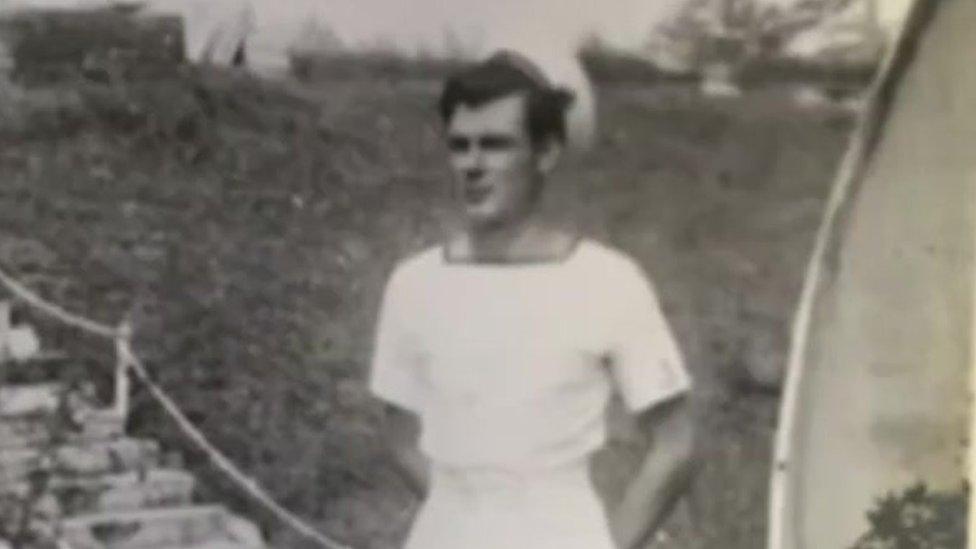
Alan Higgins was just 15 when he signed up for the Royal Navy in Barry Dock
Mr Higgins, originally from Barry, was awarded the Arctic Star by the Russian government and received another medal from the Russian Embassy to mark the 75th anniversary of the convoys.
He made eight supply voyages through terrible storms, while being attacked by sea and by air. In total the convoys transported nearly eight million tonnes of supplies and munitions to Russia between 1941 and 1945.
The British Merchant Navy along with Russian, US, Canadian, Norwegian and Dutch merchant fleets were involved. More than 3,000 Allied seamen lost their lives to the freezing conditions and attacks during the trips to ports in the Arctic Circle.

The 75th anniversary medal he was awarded for his service during the Arctic Convoys
Among the 120 merchant and military vessels sunk was the HMS Edinburgh, on which Mr Higgins was serving, which was carrying nearly five tons of gold bullion back to the UK, with a value of about £1.5 million in 1942, as part-payment by the USSR for the supplies.
He wrote a book about his experiences and in an interview with BBC Wales' War Stories, World War 2: On the Convoys, he described the events he lived through.
"The attacks went on for two days , so I thought, that's it...we'll all die," he once recalled.
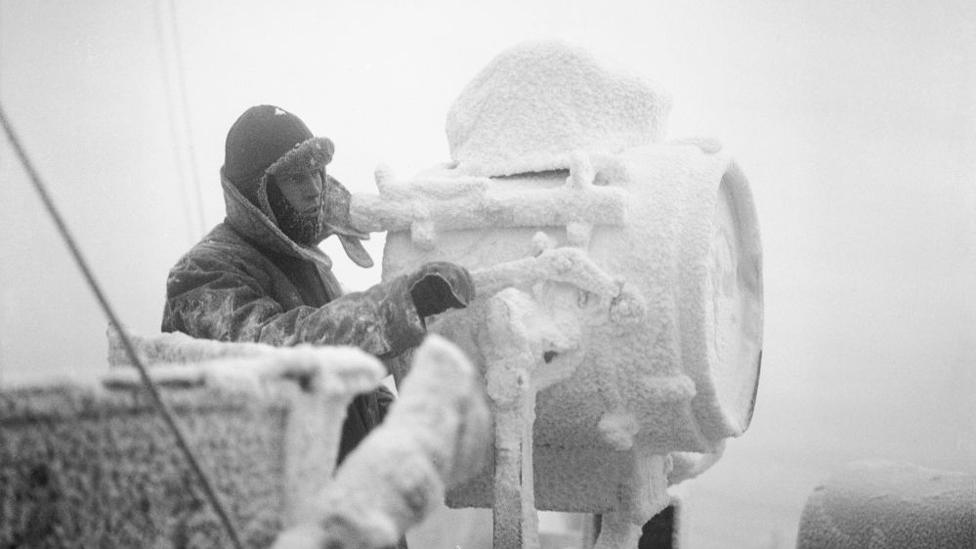
Crews had to endure freezing conditions during the convoys
"When we got hit by third torpedo, the boat was almost blown in half. The admiral decided to abandon ship and I got aboard a mine sweeper.
"We tried to sink the Edinburgh by gunfire and depth chargers because we didn't want to leave the ship hanging about with all that gold on it in case the Germans might have taken it. So one of our destroyers put a fourth torpedo in it and it sunk in a minute. "
As a tribute to the veteran a socially distanced naval send off took place from outside his home in Bridgend where neighbours also lined the street.
"Every time I met Alan he would say he's the luckiest man alive," said Robert Govier, Royal Navy engagement officer for Wales.
"From all he went through, he genuinely felt lucky to be here and was determined to make the most of life.
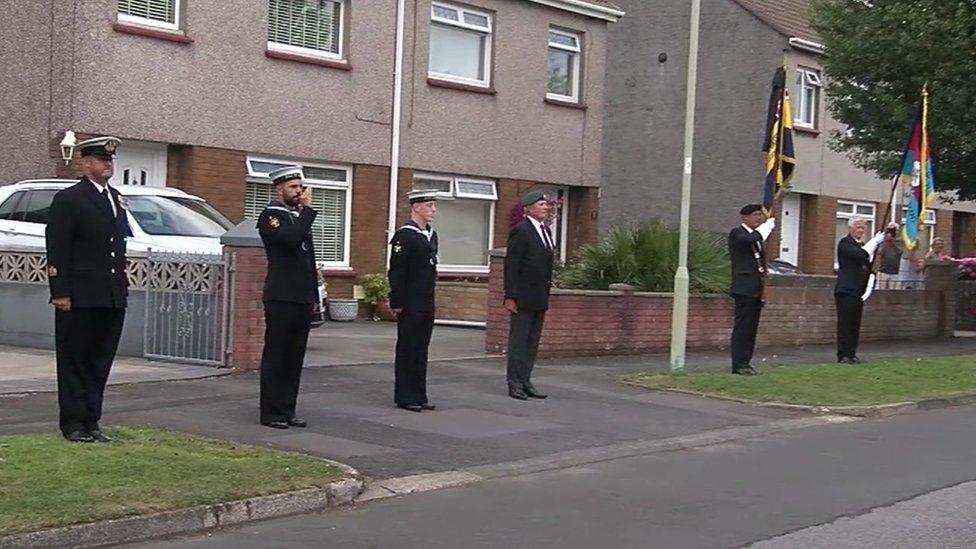
Current and former service people joined neighbours onthe street in Bridgend where Mr Higgins lived
"Alan's role on D-Day was to ferry soldiers on to Sword beach. He was a radio operator and the actual landing craft he was on took a direct hit.
"Part of Alan's role was to get into the troop space and help the injured people that day.
"I feel so privileged to have spent time with Alan and listen to his stories some which would leave me with my mouth ajar.
"It's really important that this generation are treated as national treasures because the sacrifices they made for us were quite incredible."
- Published18 April 2020
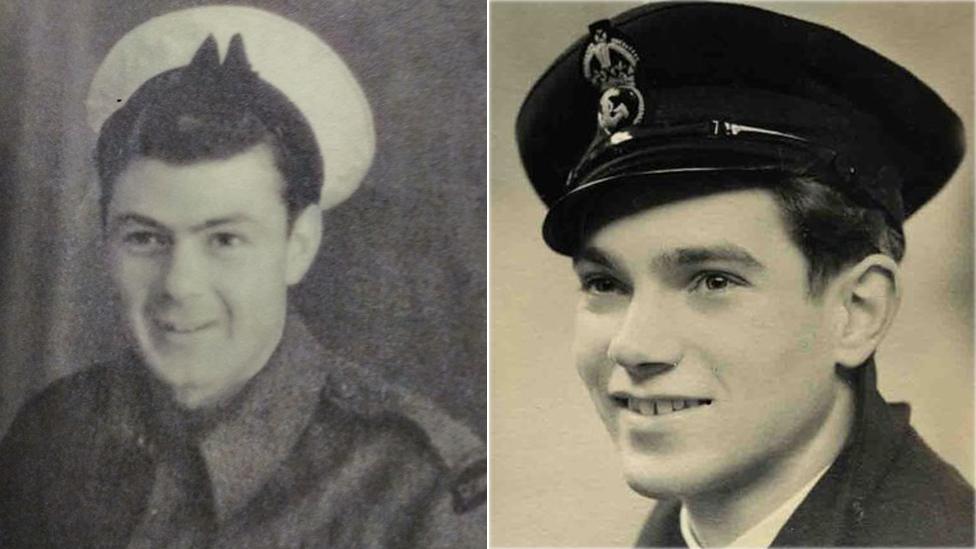
- Published5 March 2020
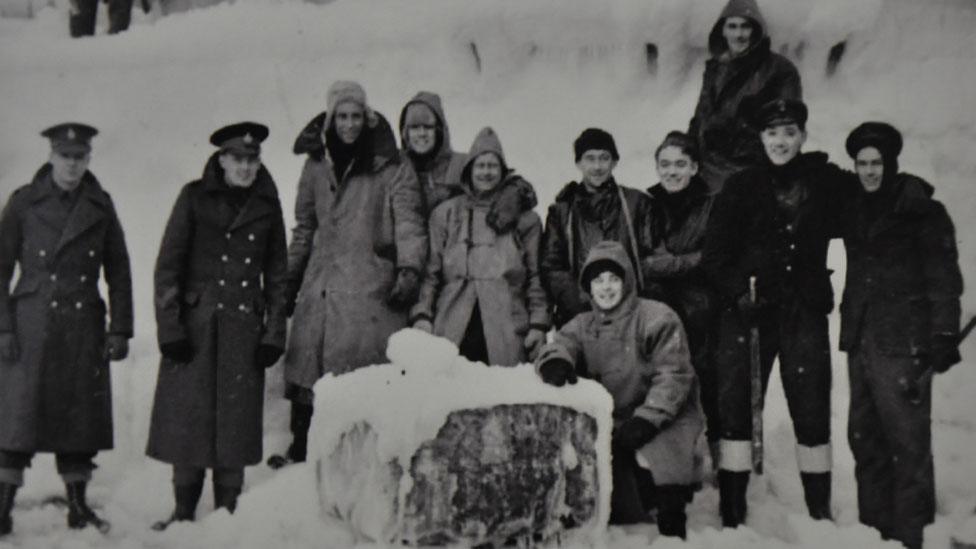
- Published9 December 2016
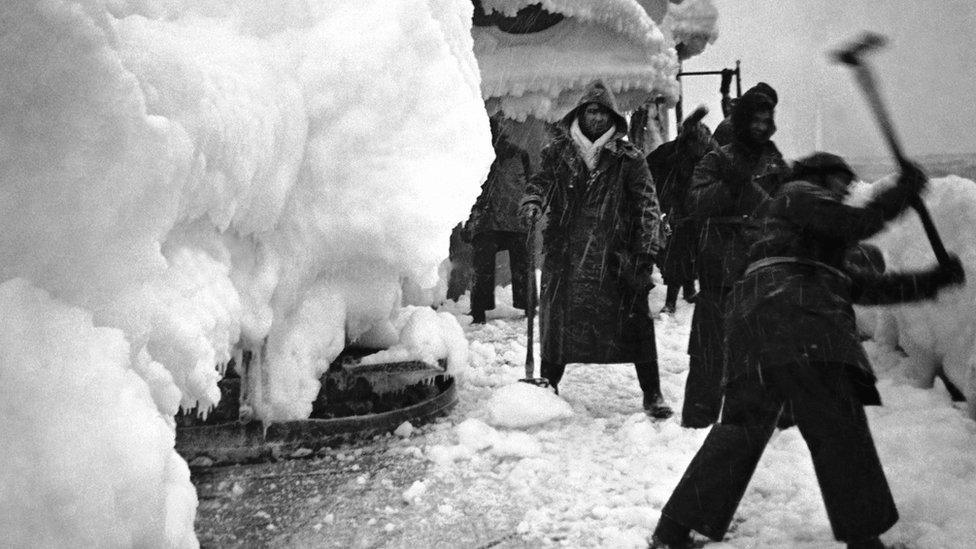
- Published18 August 2016
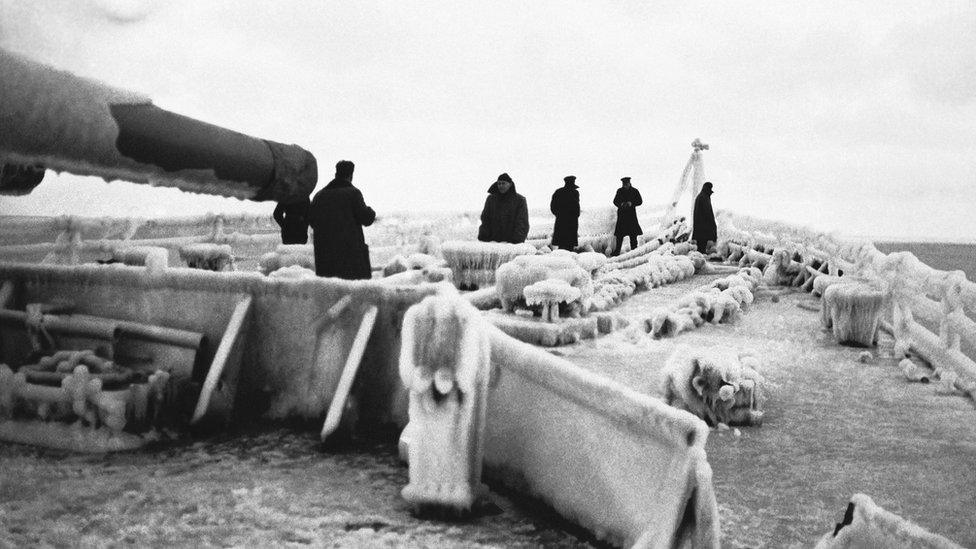
- Published28 May 2013